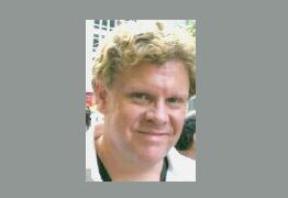PBS at TCA: Reaction to Romney, Blowout Performances by The B-52s and Tony Bennett and a Grand Look Back at the Career of Johnny Carson

Ed Martin Live from the 2012 Winter Television Critics Association Tour
Whatever the broadcast and cable networks have planned for the remainder of the 2012 Winter Television Critics Association tour they will be hard pressed to top the presentations Wednesday and Thursday by PBS.
In truth, PBS always puts on a great show at TCA gatherings. But there was a distinctive high energy this time around to their many typically diverse sessions, which filled the first two days of this tour. Perhaps it's the aura created by the "Masterpiece" phenomenon "Downton Abbey," the second season of which begins on Sunday. Or it could be the extreme timeliness of PBS President and CEO Paula Kerger's press conference Wednesday morning that pumped PBS into high gear. During that session the morning after Mitt Romney's success in Iowa, Kerger fielded questions about his controversial call for an end to federal funding for PBS and his suggestion that it sell advertising to cover the loss.
"We do have restrictions through the FCC, and so we can't just take ads," Kerger noted, adding, "a few years ago the Office of Management and Budget actually did an evaluation of the possibility of eliminating federal funding, and they came to the conclusion that it would be impossible for us to become a broadcaster that was not at least supported in part by a federal appropriation. And for those that say, 'Well, let the marketplace take care of it,' … there are a number of channels in the cable world that started out with really great ideas that they would be the commercial version of public television, and all of them have gone down very different paths. Programs like 'Pawn Stars' and 'American Pickers' [are] not the same as 'American Experience' and Ken Burns."
Perhaps the overall energy that distinguished PBS' days at the tour had something to do with its music events, which included a cabaret performance Wednesday afternoon by Michael Feinstein (on behalf of "Michael Feinstein's American Songbook II," premiering in February), a sensational concert Wednesday night by the timeless and apparently tireless band The B-52s (in support of their upcoming special "B-52s With the Wild Crowd!," which debuts in March) and a performance Thursday night by the indefatigable Tony Bennett. (His special, "Tony Bennett: Duets II," will premiere January 27 on "Great Performances.")
There were many other panels and presentations of note, including one with the cast of the second season of "Sherlock" (set to premiere in May) and one for several "Independent Lens" programs that will debut in February for Black History Month that included among its panelists author and activist Angela Davis. But for many of the television critics and reporters here, especially the older folks (myself included), the most rewarding session may have been yesterday's press conference for the upcoming "American Masters" documentary "Johnny Carson: King of Late Night" (premiering May 14). The panelists were frequent Carson guest and close friend Angie Dickinson, comedian Drew Carey (who got his big break on "The Tonight Show") and the producer and director of the documentary, Peter Jones.
Some of the excitement that came from watching vintage clips of Carson and his "Tonight" sidekick Ed McMahon was lost on younger TCA members, but the rest of us were entertained all over again. As the panel progressed it became increasingly clear that there is nobody on broadcast or cable television today that has the kind of power and influence as an entertainer that Carson enjoyed throughout most of his now legendary 30-year run as host of the once-formidable NBC franchise. Carey supported this assertion when he recalled that an appearance on "Tonight" could launch overnight an unknown comedian's career, especially if Carson motioned for said comedian to walk over to his desk for a brief chat at the end of his or her routine. "It was like being saved by Jesus," Carey said. "All the comedians who got called over to the couch [at the end of] their first appearances became famous." (Carey cited as examples Ellen DeGeneres, Roseanne Barr and Jerry Seinfeld, all unknown until Carson called.)
One highlight of the Carson session was Jones revealing that Joan Rivers, whom Carson selected as his first permanent guest host, was his "pride and joy," and that he was "devastated" in the Eighties when he learned (from someone else) that she was negotiating for a late night talk show of her own on the then-new Fox network. (When Rivers called to tell Carson about it, he famously hung up on her and never talked to her again.) Rivers, said Jones, acknowledges in the program that she didn't tell Carson what she was up to in advance of her meetings with Fox.
"King of Late Night" also covers Carson's decision to step down as "Tonight" host and his failed efforts to convince NBC that David Letterman should take his place; the issues with his mother, his many wives and his sons that compromised Carson's personal life, and his super-stardom in the mid-Sixties when he was commonly referred to in the press as the most famous person in America. This is an "American Masters" production that is not to be missed by anyone who fondly remembers what broadcast television used to be.


